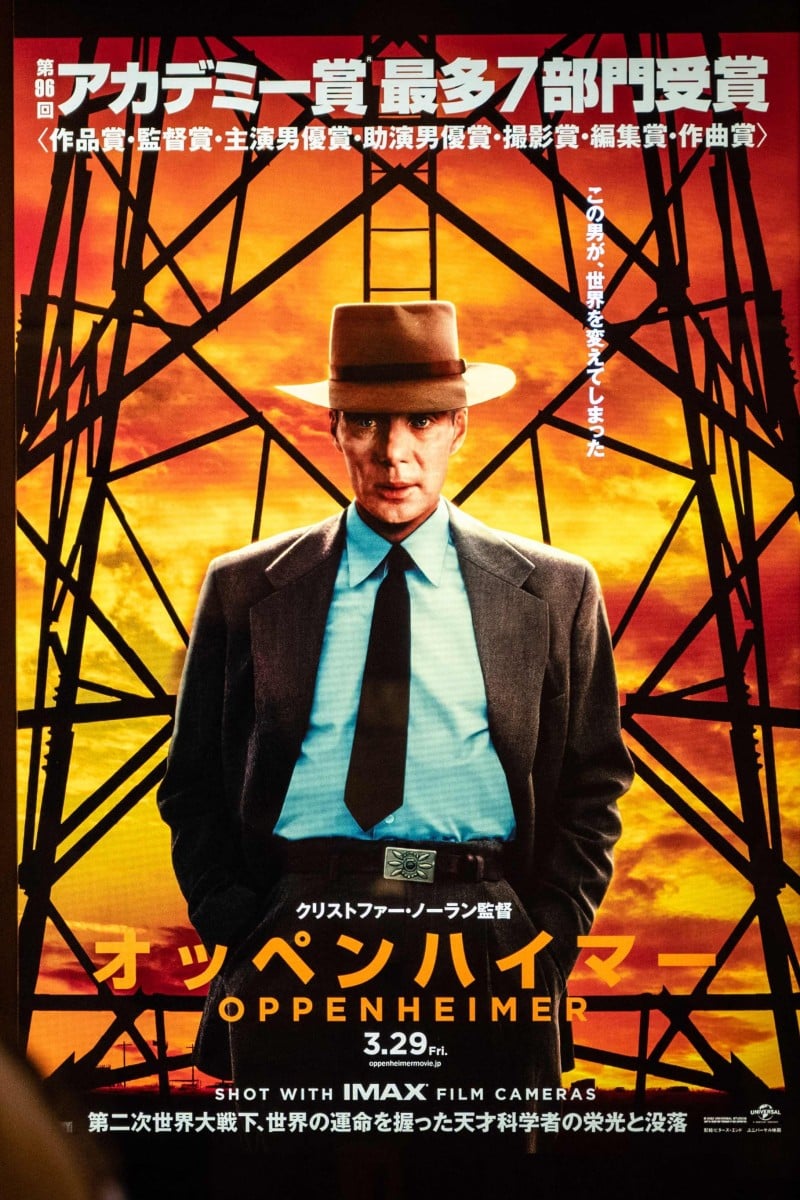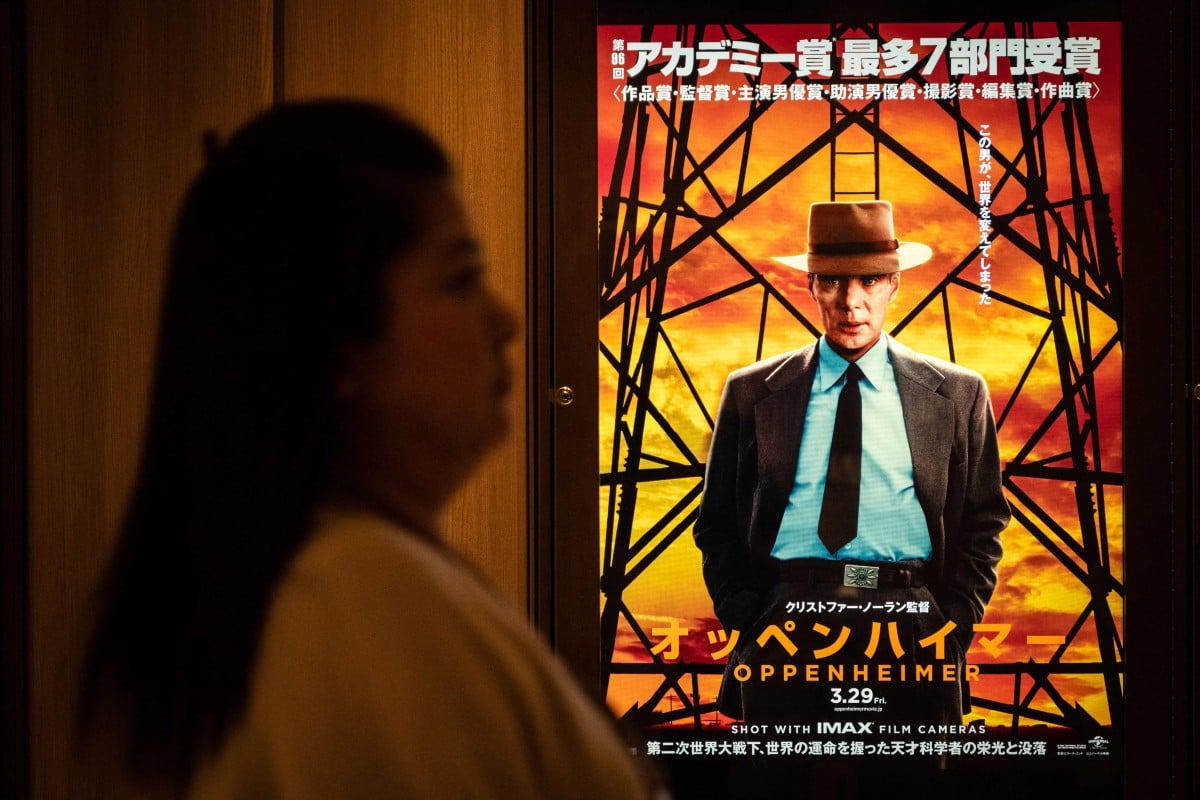
‘Oppenheimer’ finally opens in Japan, the only country to have suffered a wartime nuclear attack
- US blockbuster was released in many other regions in July alongside ‘Barbie’, but was absent from the country where its subject is a sensitive topic
- Some say film should have shown the bombs’ effects on Hiroshima and Nagasaki, where thousands were killed and many more developed cancer
 A woman walks past an advertisement for “Oppenheimer” in Tokyo on March 29, 2024. Photo: AFP
A woman walks past an advertisement for “Oppenheimer” in Tokyo on March 29, 2024. Photo: AFPOscars best picture winner Oppenheimer was finally released on Friday in Japan, where its subject - the man who masterminded the creation of the atomic bomb - is a highly sensitive and emotional topic.
The US blockbuster hit screens in the United States and many other countries in July at the same time as Barbie, inspiring a viral phenomenon dubbed “Barbenheimer” by moviegoers.
But while Barbie was released in Japan in August, Oppenheimer was conspicuously absent from cinemas for months.
No official explanation was offered at the time, fuelling speculation the film was too controversial to be shown in Japan - the only country to have ever suffered a wartime nuclear attack.
Oppenheimer sweeps the Academy Awards, Emma Stone bags second Oscar
Around 140,000 people died in Hiroshima and 74,000 in Nagasaki when the United States dropped atomic bombs on the cities in 1945, days before the end of World War II.
At a large cinema in central Tokyo where Oppenheimer was showing on Friday, there was none of the prominent promotional material that might be expected for a global megahit.
Instead only one small poster advertised the film, which was shot on a US$100 million budget and collected nearly US$1 billion at box offices worldwide.
The film tells the story of US physicist J. Robert Oppenheimer, who oversaw the bomb’s invention.
It drew rave reviews and was the most decorated title at this month’s Oscars, scooping seven awards including best director for Christopher Nolan and best actor for star Cillian Murphy.
But in Hiroshima, the city devastated by the first nuclear bomb, the biopic’s Academy Awards success met a mixed reaction.
Kyoko Heya, president of the city’s international film festival, told Agence France-Presse after the awards ceremony that she had found Nolan’s movie “very America-centric”.
“Is this really a movie that people in Hiroshima can bear to watch?” she asked.
Japan’s WWII orphans talk about their pain and recovery
Today the city is a thriving metropolis of 1.2 million people, but the ruins of a domed building still stand as a stark reminder of the horrors of the attack, along with a museum and other sombre memorials.
Heya said that after much reflection, “I now want many people to watch the movie.”
“I’d be happy to see Hiroshima, Nagasaki and atomic weapons become the subject of discussions thanks to this movie,” she said.
Last year, viral “Barbenheimer” memes sparked anger online in Japan, where media reports have highlighted critics who say the film does not show the harm caused by the bombs.
“There could have been much more description and depiction of the horror of atomic weapons,” bomb survivor and former Hiroshima mayor Takashi Hiraoka, 96, said at a special screening in the city earlier this month.
Oppenheimer was also shown at a preview event in Nagasaki, where survivor Masao Tomonaga, 80, said he had been impressed by the movie.
“I had thought the film’s lack of ... images of atomic bomb survivors was a weakness,” said Tomonaga, who was two when the second bomb was dropped and later became a professor studying leukaemia caused by the attacks.
“But in fact, Oppenheimer’s lines in dozens of scenes showed his shock at the reality of the atomic bombing. That was enough for me.”